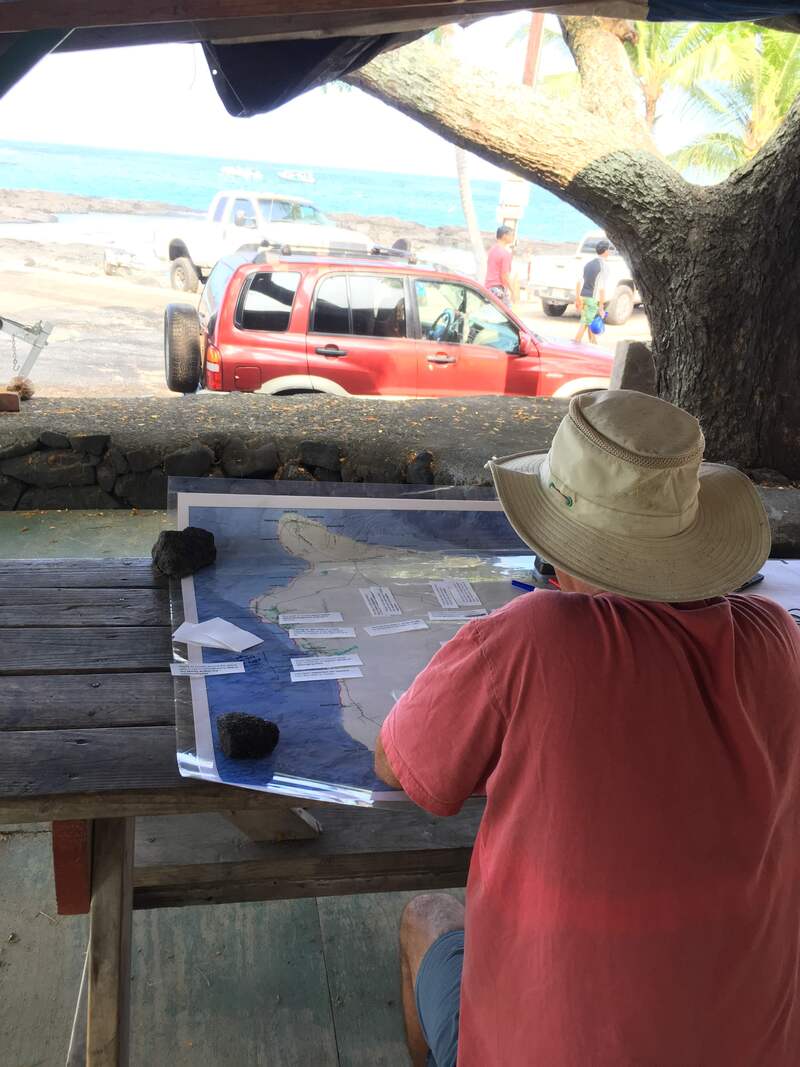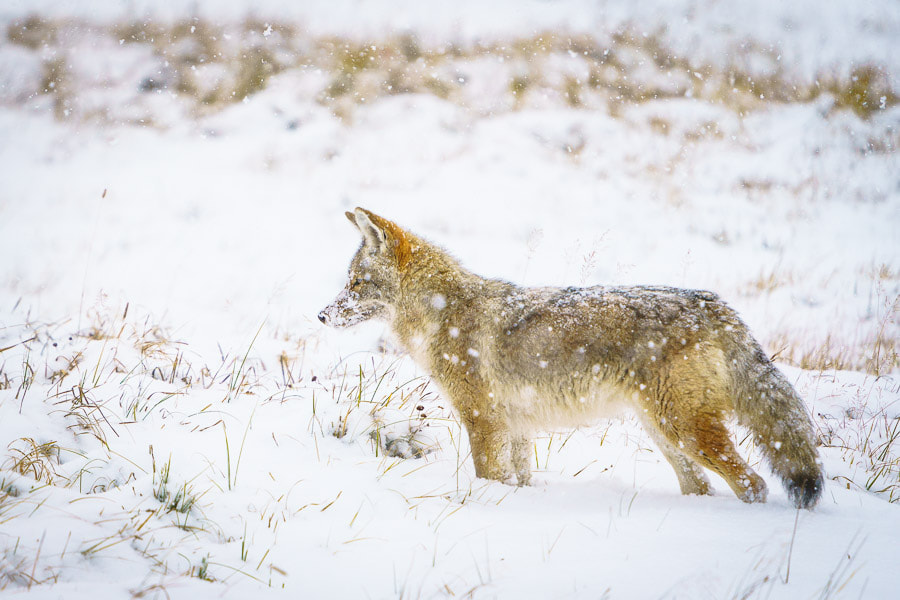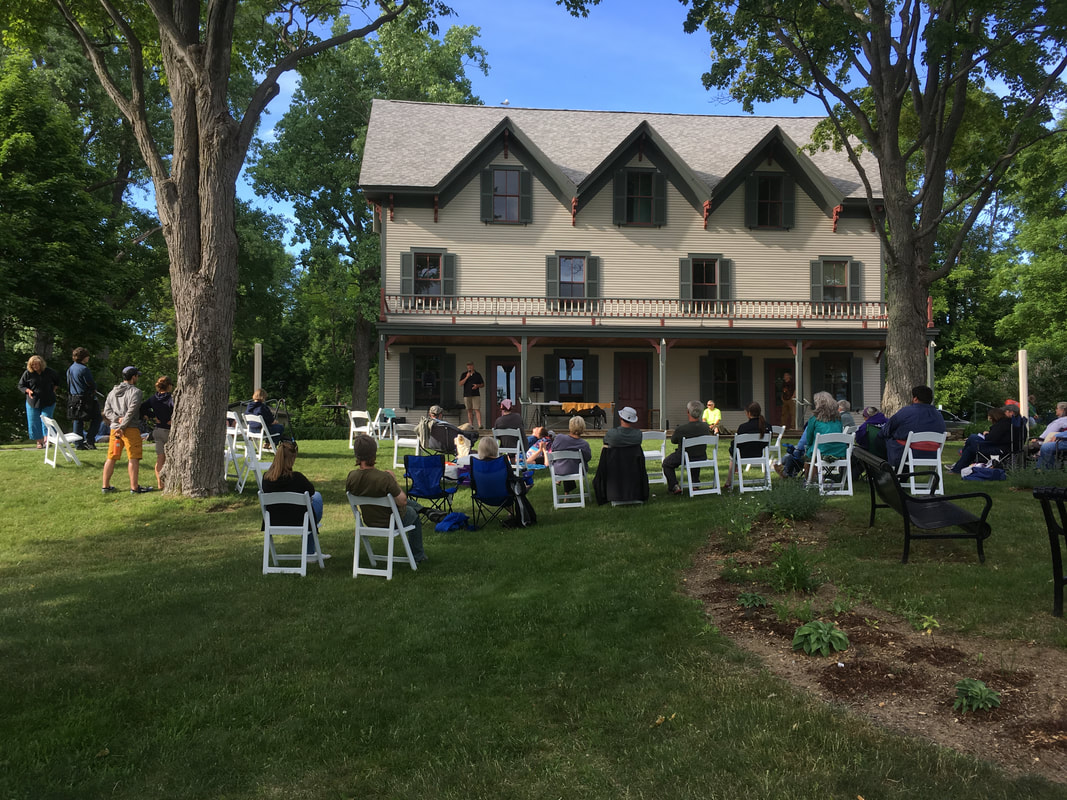Our work focuses Environmental Values and Environmental Learning, with attention to how both relate to pro-sustainability action at multiple scales. Issues of equity, inclusion, and justice form the foundation of and infuse our research.
Environmental values (and their relations to decision-making and action)
This work focuses on the values that ecosystems provide to people (e.g., spiritual fulfillment, psychological well-being, identity) and on the values-as-principles associated with ecosystems (e.g., harmony, responsibility, dominance). Our research in this area has three main goals: (1) to improve our understanding of how ecosystems benefit us in non-material ways ("value as worth)", (2) to understand the ways values-as-principles relate to ecosystems, and (3) to facilitate incorporation of those benefits (particularly diverse benefits) into decision-making and therefore action.
We are working on a number of projects in this area. See our publications page for recent articles. On-going (as-yet-unpublished) projects include follow-up to our 2019 analysis (with video abstract!) of how cultural ecosystem services (CES) research connects to decision-making (Josh Morse's work); work on the values associated with different types of maple sugar production in Vermont (Daniel Pratson's work); how urban biodiversity relates to environmental justice (Harold Eyster's work); and multiple explorations into the relationship between ecosystem quality and cultural ecosystem services and relational values (Alison Adams' and Diana Hackenburg's work).
Environmental Learning (and its relation to action)
In this work, we explore the nuance of how people learn about environmental issues, the nature of environmental concern, how and why people are motivated to take action or not, and how values are related to learning and behavior.
Our projects in this area include experiments that explore how communication focused on different types of values may impact policy support and other outcomes (Tatiana Marquina's and Diana Hackenburg's work; Tatiana's papers are on our publications page); "citizen social science" that investigates how community-based data collection may develop students' environmental awareness and transferable skills (Josh Morse's work); and a literature review on the role of love in sustainability science (Jen Cirillo's work).
Combining the two research areas
These two topical research areas inform each other and interact in numerous ways. We are working on multiple projects that integrate them, and that foreground issues of equity and justice. These include:
Learn more about our research on our Publications page.
Environmental values (and their relations to decision-making and action)
This work focuses on the values that ecosystems provide to people (e.g., spiritual fulfillment, psychological well-being, identity) and on the values-as-principles associated with ecosystems (e.g., harmony, responsibility, dominance). Our research in this area has three main goals: (1) to improve our understanding of how ecosystems benefit us in non-material ways ("value as worth)", (2) to understand the ways values-as-principles relate to ecosystems, and (3) to facilitate incorporation of those benefits (particularly diverse benefits) into decision-making and therefore action.
We are working on a number of projects in this area. See our publications page for recent articles. On-going (as-yet-unpublished) projects include follow-up to our 2019 analysis (with video abstract!) of how cultural ecosystem services (CES) research connects to decision-making (Josh Morse's work); work on the values associated with different types of maple sugar production in Vermont (Daniel Pratson's work); how urban biodiversity relates to environmental justice (Harold Eyster's work); and multiple explorations into the relationship between ecosystem quality and cultural ecosystem services and relational values (Alison Adams' and Diana Hackenburg's work).
Environmental Learning (and its relation to action)
In this work, we explore the nuance of how people learn about environmental issues, the nature of environmental concern, how and why people are motivated to take action or not, and how values are related to learning and behavior.
Our projects in this area include experiments that explore how communication focused on different types of values may impact policy support and other outcomes (Tatiana Marquina's and Diana Hackenburg's work; Tatiana's papers are on our publications page); "citizen social science" that investigates how community-based data collection may develop students' environmental awareness and transferable skills (Josh Morse's work); and a literature review on the role of love in sustainability science (Jen Cirillo's work).
Combining the two research areas
These two topical research areas inform each other and interact in numerous ways. We are working on multiple projects that integrate them, and that foreground issues of equity and justice. These include:
- A collaborative project that engages Vermont high school classes, the Vermont Folklife Center, and the Vermont Department of Fish and Wildlife to collect diverse community members' stories about eastern coyotes. The stories (may!) shed light on Vermonters' wildlife values, and the student experience aims to help them gain transferable skills. (Josh Morse's work).
- A collaborative project (funded by the EPA) focused on cyanobacterial blooms in St. Albans, Vermont, which explores how people from different backgrounds learn about cyanobacterial blooms and how the blooms impact ecosystem-related values. (Diana Hackenburg's work).
Learn more about our research on our Publications page.



